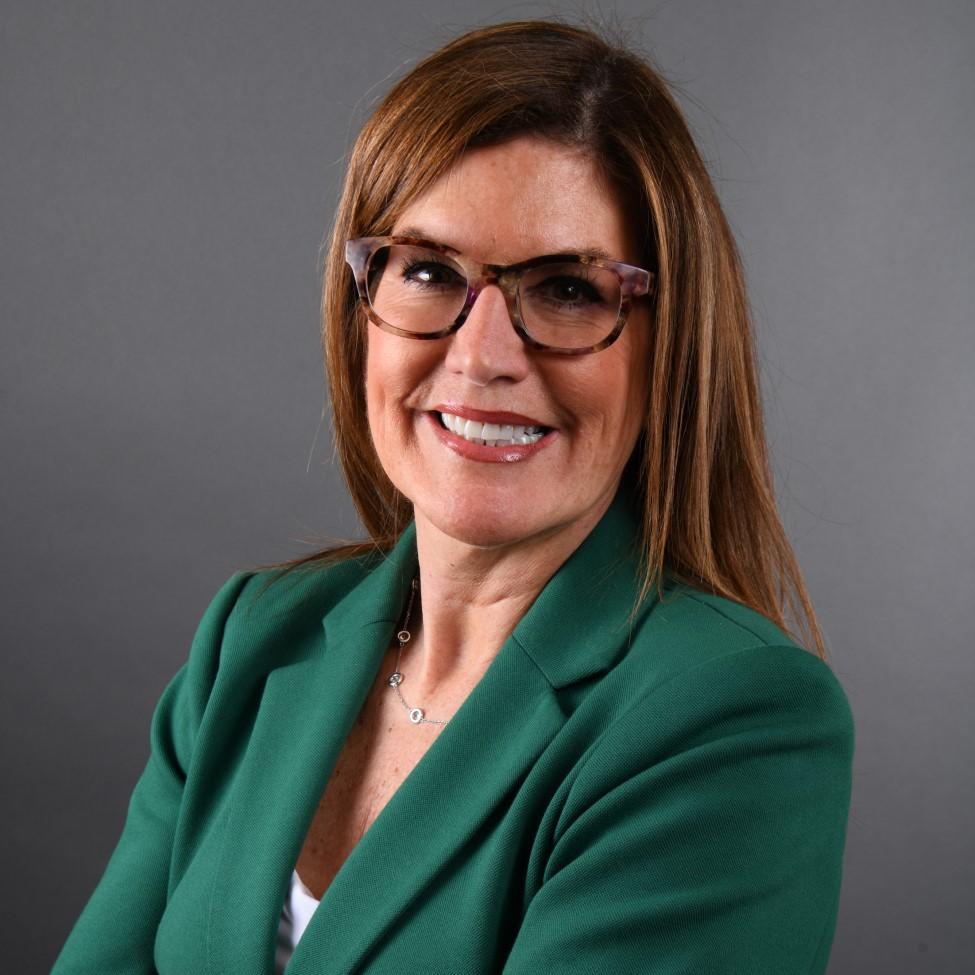
Live With Kelly and Mark
In student and alumni news, on Live with Kelly and Mark, actor Christopher Briney '20 gave a shoutout to Pace University highlighting his roots in Pace’s performing arts program during his national television appearance.
Pace University Hosts Business Students from India for Prestigious Summer Exchange
News India Times reports Pace University recently hosted business students from India’s Jindal Global University as part of its prestigious summer exchange program, now in its second year. The initiative offers students hands-on exposure to American business practices and cross-cultural academic collaboration in the heart of New York City.
AI and education in Korea
Dyson Professor Seong Jae Min writes a piece in The Korea Times about how AI is reshaping college teaching, describing his shift away from traditional writing assignments and calling for new standards to preserve academic integrity.
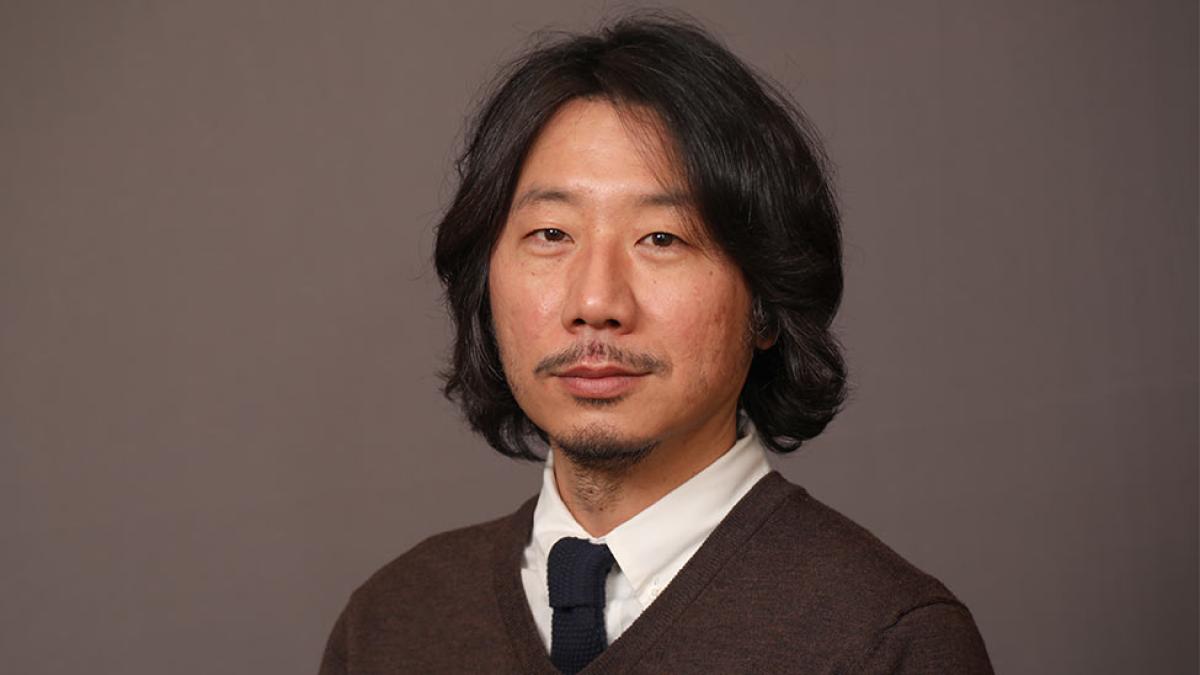
A Mere Mass of Error
American Studies Professor Philip Kadish pens an op-ed in History News Network reflecting on the deeper truths behind historical hoaxes and the dangers of mistaking popular myths for reality.
Immigration Officials Issue New Warning to Green Card Holders
Professor Amelia Wilson, Director of the Immigration Justice Clinic at the Elisabeth Haub School of Law provides a legal analysis to Newsweek about recent warnings issued to green card holders. She clarified that there are clear legal protections in place, offering much-needed context on immigration law and due process.
Zohran Mamdani Beats Out Eric Adams and Andrew Cuomo, New Poll Shows
Political Science Professor Laura Tamman speaks to Newsweek where she weighed in on the political ripple effects of Assemblymember Zohran Mamdani’s strong showing in the mayoral race, noting it would be “foolish” for city Democrats to back anyone but the eventual nominee.
Fears over how Americans are perceived abroad dampen US travel enthusiasm
Lubin Professor Andrew Coggins shares expert insight to Channel News Asia about how concerns over American image abroad are dampening U.S. travel interest.
Inside City Hall - Spectrum News NY1
Political Science Professor Laura Tamman appears on Spectrum News NY1’s Inside City Hall with Errol Louis. There, she discussed Mayor Eric Adams’ efforts to defend his record as he campaigns for reelection.

Westchester County District Attorney Susan Cacace '89: A Dedicated Public Servant
Susan Cacace ’89 began her legal career as an Assistant District Attorney of Westchester County after graduating from what was then known as Pace Law School. In 2005, she began her nearly 20 years of service as a Westchester County Court Judge. A dedicated public servant, after spending 30 years as a prosecutor, defense attorney, and judge, she decided it was time to pursue a lifetime dream of serving Westchester County as the District Attorney. Now, after winning the election and taking office earlier this year, Westchester County DA Susan Cacace has an ambitious list of priorities to “bring Westchester to a better place.”


Susan Cacace ’89 began her legal career as an Assistant District Attorney of Westchester County after graduating from what was then known as Pace Law School. In 2005, she began her nearly 20 years of service as a Westchester County Court Judge. A dedicated public servant, after spending 30 years as a prosecutor, defense attorney, and judge, she decided it was time to pursue a lifetime dream of serving Westchester County as the District Attorney. Now, after winning the election and taking office earlier this year, Westchester County DA Susan Cacace has an ambitious list of priorities to “bring Westchester to a better place.”
What was your path to law school?
I am one of those people who knew that they wanted to be a lawyer from a very young age. My father was a judge in Yonkers, and he was my motivation when I was a kid. I often went to court with him and enjoyed seeing arraignments and courtroom dynamics. Right away, I knew I was most interested in criminal law and also because of the values instilled by my father, I knew I wanted to go into a career of public service.
What made you choose what is now known as the Elisabeth Haub School of Law at Pace University to pursue your law degree?
My father was instrumental in that as well. At the time, Pace Law was a newer school. My father suggested that it did not make sense to waste time commuting to a school too far away since a majority of my time would be spent studying. We lived in nearby Yonkers, so I followed his suggestion and chose Pace Law. I had also attended Pace University as an undergraduate student. My husband is a graduate of the Law School as well. And, in a full circle moment, my youngest daughter is graduating from college in May and just sent in her deposit to attend Pace Haub Law in the fall.
Who were some of your most impactful professors and experiences during your time at the Law School?
Professor Ralph Stein – he was a legend in his own time. Professor Don Doernberg was great. Professor Hervey Johnson, he was my contracts professor and was wonderful. Also, Professor Jay Carlisle had a great impact on me, and still does. The Pace London Law Program was a highlight of my time as a law student. It was the dream of a lifetime and a great experience.
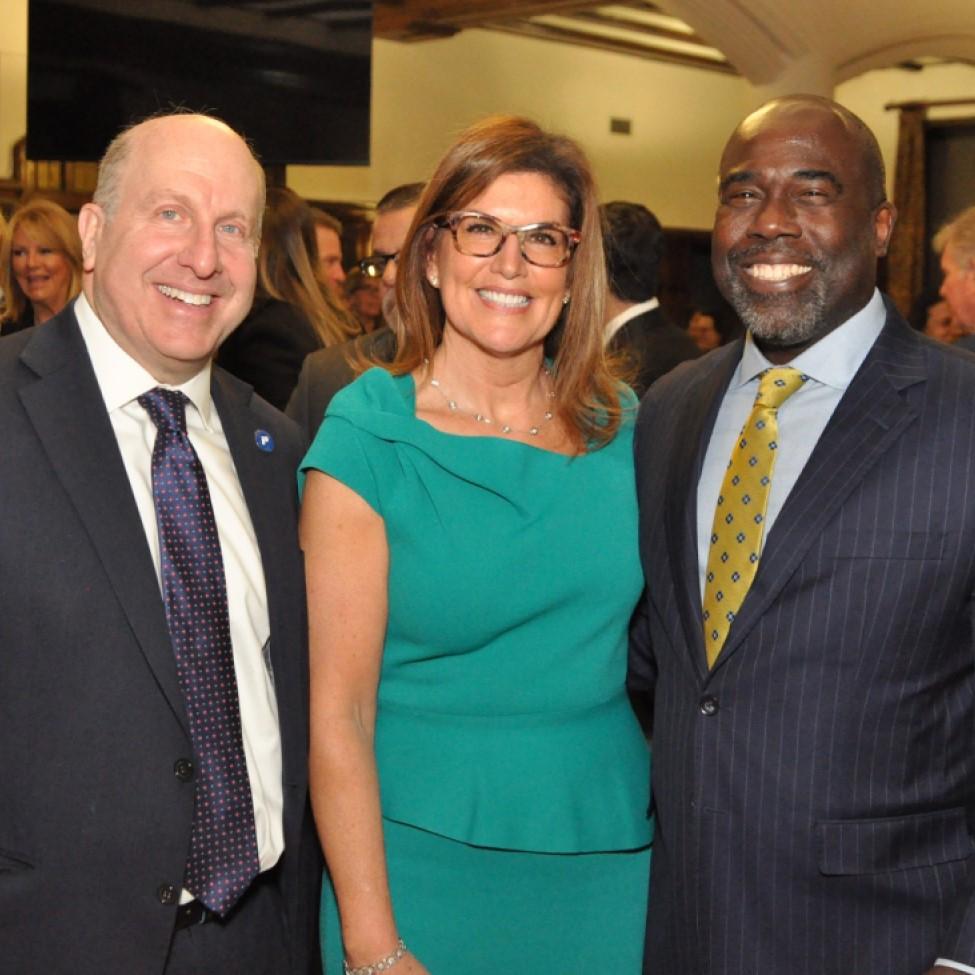
How do you feel the Law School prepared you for your legal journey?
I feel it prepared me well – I was able to take courses and have experiences that gave me the confidence I needed to succeed. As a young assistant district attorney, having that confidence is important because at some point you do end up in court and that is when the confidence and knowledge that you gained in law school gets put to work.
The Law School does a great job of preparing you to enter the legal market as an embedded member of the Westchester community. As a student, you have the opportunity to be exposed to various bar associations and networking opportunities during law school. Through these opportunities, you get to know so many different people within the legal community – lawyers, judges, and more. I was fortunate enough to be a Columbian Lawyers Association scholarship recipient and because of that I met some of the members of the Association. The first thing I did when I graduated law school was join that organization, many members whom I already knew between the opportunities at the Law School and also because of my scholarship.
The Law School does a great job of preparing you to enter the legal market as an embedded member of the Westchester community. As a student, you have the opportunity to be exposed to various bar associations and networking opportunities during law school.
You retired after nearly 20 years on the bench, what drove you to decide to pursue running for Westchester County DA?
I had been thinking about it for a long time, but the time was never quite right. This time, I just knew. I had been a judge for almost 20 years. Being Westchester County DA was always something I wanted to do. I was prepared for it, I had the experience, I had the drive, and the opportunity was there so I decided to go for it. Westchester is my home and I am committed to making it safer and bringing it to a better place.
What are some of your priorities as Westchester County DA?
Getting back to the basics, being tough on violent crime for one. My motto during my campaign was Justice with Compassion – justice for the violent criminals, compassion for first-time offenders. We need to hold people accountable who have been in the system, utilize alternatives to incarceration where possible, take guns off the streets, tackle the opioid crisis, be responsive to bias crimes, and focus on reducing sex offenses. I was the sex offense judge for Westchester County for over 14 years. Every sex offense that was committed in Westchester County ran through my part. It was very challenging, but you become an expert. We had a good relationship with the Department of Probation and the end result was Westchester was safer. Working together is key. You need to make sure everyone is given justice, while the public is protected.
Do you have any advice for law students who want to get into public interest law or run for elected office one day?
If politics is in your future, make sure you establish your reputation early on. Get involved in your local community organizations. Give back no matter what you are doing. For public interest, that is a lifestyle choice, and you have to decide how you feel about service. I enjoy giving back and I was always inclined towards public service because of how I was raised and how I saw my father establish his career as a judge. There are things you will sacrifice in a career devoted to public service, but the feeling of helping people and giving back is unmatched.
Faculty Focus: Professor Emily Gold Waldman
Emily Waldman is a Professor & the Associate Dean for Faculty Development at the Elisabeth Haub School of Law at Pace University. She joined Haub Law in 2006 and teaches Constitutional Law, Civil Procedure, Law & Education, and Employment Law. Most recently, Professor Waldman co-authored the book “Menstruation Matters: Challenging the Law’s Silence on Periods,” with Professor Bridget Crawford. Learn more about her recent book, advice on clerkships, and more in this Q&A.
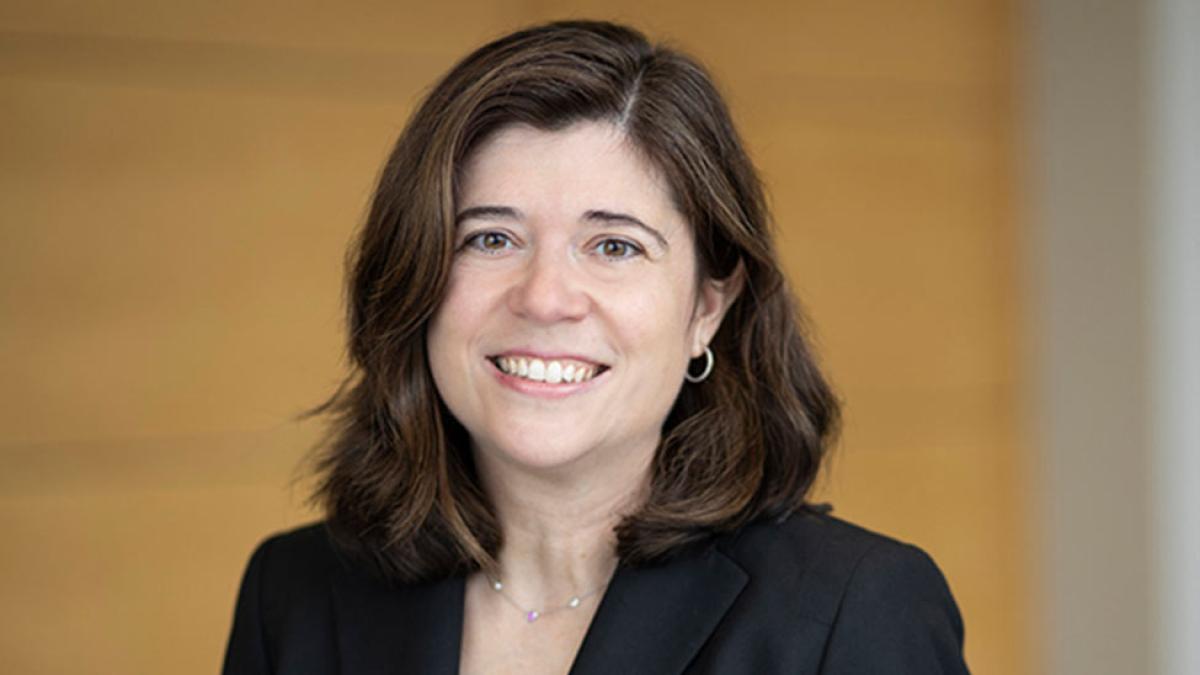
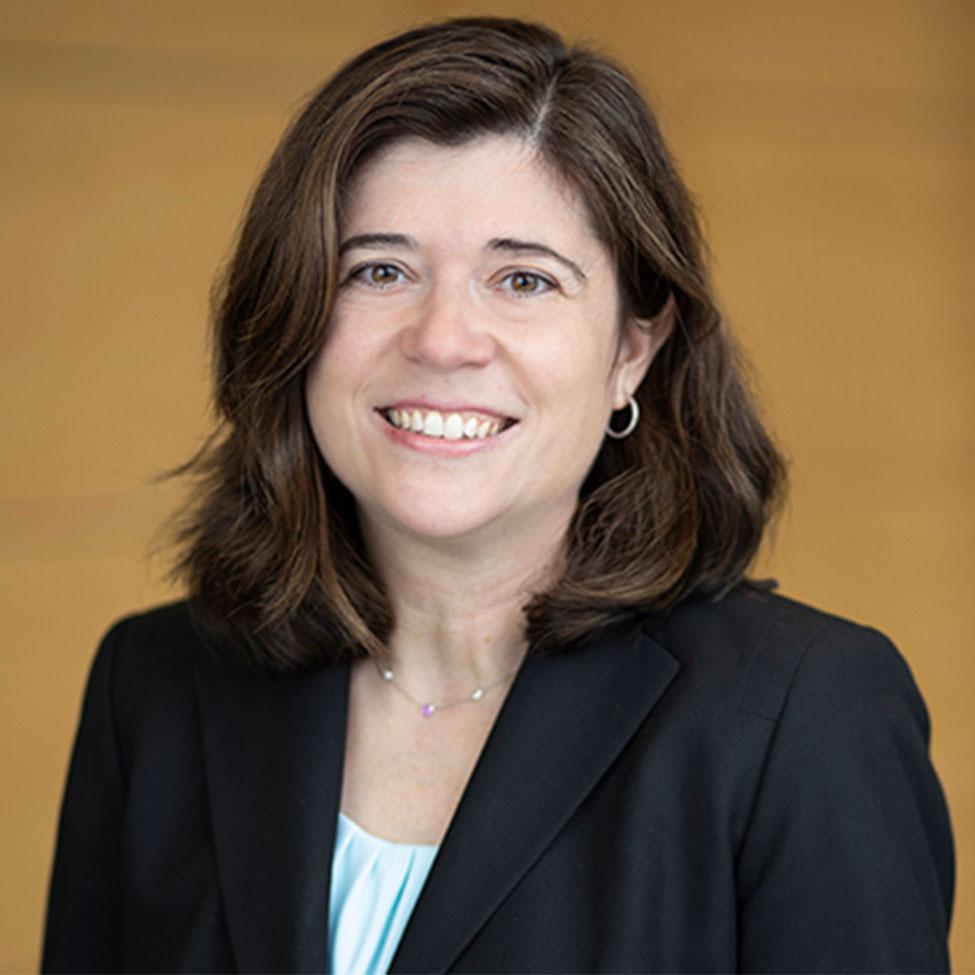
Emily Waldman is a Professor & the Associate Dean for Faculty Development at the Elisabeth Haub School of Law at Pace University. She joined Haub Law in 2006 and teaches Constitutional Law, Civil Procedure, Law & Education, and Employment Law. Most recently, Professor Waldman co-authored the book “Menstruation Matters: Challenging the Law’s Silence on Periods,” with Professor Bridget Crawford. Learn more about her recent book, advice on clerkships, and more in this Q&A.
Can you tell us about your recently published book?
The book that Professor Crawford and I wrote, “Menstruation Matters: Challenging the Law’s Silence on Periods,” looks at all of the different ways that the law intersects with menstruation. It grew out of several different articles that we wrote.
The first article that we wrote looked at the sales tax on menstrual products—in particular, that in many states, certain products are tax-exempt yet menstrual products are not. This is known as the “tampon tax.” Interestingly, this has changed a lot even since we wrote the article in 2018—more and more states have been classifying menstrual products as tax-exempt, in response to political campaigns and pressure. Our article looked at the argument that it's actually unconstitutional to tax menstrual products when other comparable unisex necessities like bandaids are tax-exempt—that it’s a form of sex discrimination, since menstrual products are so closely linked to the female reproductive system.
Then we also did an article about whether Title IX requires schools to provide menstrual products to students who can't afford them, and also dealt with other aspects of how schools address menstruation. Throughout our research and writing, we saw that there are a lot of other aspects to address like workplace issues, environmental issues, and more.
What was exciting about the book, as compared to our articles, was that we were able to tell on-the-ground stories about who is working in the “menstrual advocacy” space right now? How did they come to the topic? How did they connect with each other? What legal and political strategies did they use to try to effectuate legal change? We were able to also explore many cultural issues surrounding menstruation—in particular, the longstanding silence and stigma that accompanies menstruation. So while our book does look at the law and analyze the law, we also bring these issues to life.
You mentioned discussing with individuals how they came to this topic; what was it that sparked your interest?
It really is a very specific story. What happened was that Professor Crawford, who teaches tax law and feminist legal theory, was working on an article about the tampon tax. She presented her work at a faculty colloquium, and mentioned that constitutional challenges were being brought against the tampon tax, on the idea that it violated the Equal Protection clause. And my ears pricked up, since so much of my scholarship and teaching is focused on constitutional law. And I was thinking immediately, well, what is the exact argument that they are making? I could see that it raised some complicated constitutional questions.
And so I emailed Professor Crawford and I asked more about what the theory exactly was. We decided to meet and talk more about the issue. After doing that, we decided to write an article about it. I was hooked right away because it’s a super-interesting legal issue that has very real world consequences.
I'm always interested in issues that cut across a lot of different areas, especially areas of con law, education, law, and employment law. Menstruation is one of those areas that does that. There are constitutional aspects to it with equal protection, there are employment aspects to it in terms of accommodations and discrimination, and there are education law implications in terms of what happens in schools.
What got you interested in the more general fields of law and education, employment law, and constitutional law?
To me, they’re all just so interesting on both the intellectual and human-relations levels. I loved those topics from the time I was in law school. I tend to be very interested in legal issues that involve people in their everyday life. And if you think about it, you know when you're a kid, where do you go every day? You go to school. And then, when you’re an adult, where do you go? Every day you go to work. So both of those contexts to me are endlessly fascinating.
For example, think about public school teachers' free speech rights – that's a con law issue, but it is also an employment law and education law issue. I love seeing those connections and that some of the cases I teach in one class may also come up in another class.
Do you have any advice for students who are interested in these specific fields?
The first thing is to take all of the relevant coursework that you can, and also related classes. For example, administrative law touches on all of these things. I'm also a big proponent of clerking, getting experience with a judge, if you can, and whether you clerk for a state judge or a federal judge, you are very likely to see these areas come up. Also, make sure you follow the areas you are interested in - follow them in the newspaper, follow the Supreme Court, and more.
Do you have any advice for students interested in clerking?
I did two clerkships. First, I clerked for a federal district judge, Bill Young, right out of law school, in Boston. Then I worked at a law firm for a couple of years, and then I clerked for a judge on the Second Circuit, Robert Katzmann. So my advice is to definitely pursue it if it's something that's interesting to you. It's a fabulous experience. It’s a good idea to cast a really broad net in terms of where you apply, and to apply to both federal and state clerkships.
If you are geographically flexible, that is extremely helpful. Don't just limit yourself to the New York metro area unless you have to for personal reasons. Also, while you are at Haub Law, if you have the opportunity, apply to participate in the Federal Judicial Honors Program and one of the law reviews as well.
So outside of academics, what do you spend most of your time focused on?
My kids! They keep me busy - I have a daughter who is 13 and my son is 8. I spend a lot of time with them, hanging out with them, driving them to their activities, helping them with their homework.